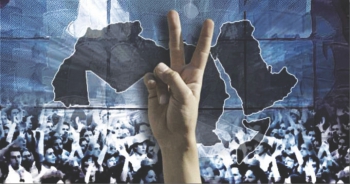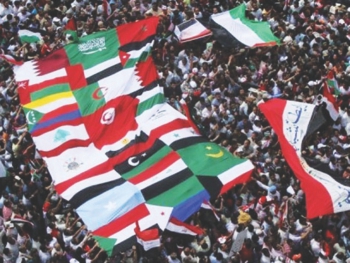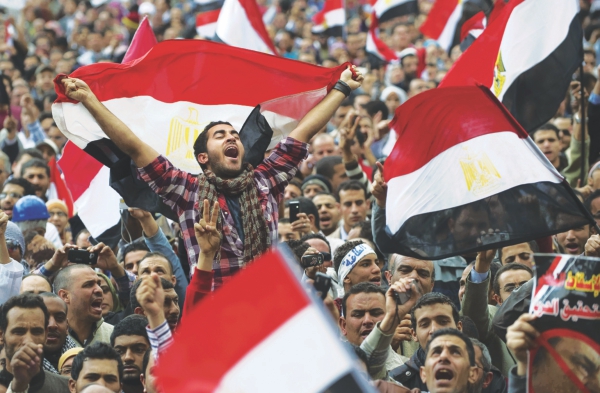| Home - Back Issues - The Team - Contact Us |
 |
| Volume 11 |Issue 47| November 30, 2012 | |
|
|
Event Crossroads of the Arab world Fayza Haq
It was an intense discussion at the office of Vice Chancellor University of Dhaka at the auditorium. Prof D AAMS Arefin Siddiqui spoke on the development of democracy in Tunisia, Egypt and Libya. The scholars from home and abroad had met to exchange ideas and give their opinion on culture and civilisation— especially that of the Muslim world in the Middle East. All of November the Alliance francaises in Dhaka and Chittagong have been organising a series of academic and cultural programmes focusing on the Arab Spring. At the Senate Hall, Dr Arefin Siddiqui said that Dhaka University was a symbol of the honour of the people of Bangladesh. The Shahid Minar, nearby, went hand in hand, with the demand for democracy, for Bangladeshis. Technology and general knowledge was exchanged in the drive for democracy all over the world, said the Dhaka VC with vigour and emotion. Dwelling on the Arab public opinion, Dr Siddiqui said that democracy is more than having free and fair elections. The citizens have to be free from corruption: and the gap between expectancy with a population of over 150 million is not simple. He referred to the numerous movements of our history that shaped our nation - the Language Movement; Six Point Demand, and the protest and rebellion against military rule, where the interest of the people was undermined. Olivier Litvine, Director of Alliance Francaise de Dacca, said that he wished to encourage debates and exchange of ideas. He felt that people should be able to share ideas and practice tolerance. Here the Internet plays a vital role, he said. “There is war all over the continents. Why is Arab Spring chosen? It's because the Middle East is important. Yesterday Alliance Francais had its poetry ; and on 23rd , the Lebanese-French Abaji sang under the Bot Tola." Ambassador Retired Humayun Kabir—who had been posted to the US and Australia, said the exchange of ideas should usher in new ideas. He said that both the young French and Bangladeshis shared an interest in discussing politics. He said that the Arab world had shaken them up for at least a year. The relationship between the individual and the state, as Socrates put it, is important. He said that the underlying religious and political motives are of great consequence. All the show of violence is a cry for democracy. The response of the press to the happenings of the Arab world is important, Kabir added. Dr Shaheen Afroze commented that the press coverage, since 2010, of the Arab world such as Syria, Libya, and Algeria, has been significant. The PLO and the supporters of the Prophet of Islam were highlighted, she said. There was increase of focus on democracy in the Middle East. These countries are the source of our foreign earnings she said. The editorials were focused on the Arab world such as Libya and Egypt. Professor Imtiaz Ahmed of the International Relations said that the colonial system is to be blamed—as Rabindranath Tagore and Mahatama Ghandhi put it—“ If no one listens to your call then go alone” and this what an individual would be advised to do he said.
Professor Imtiaz continued, "In the 11th century Al Ghazali said 'My body is like a cage, which holds my spirit.' The Sufi poet Lalon of the 19th century felt the same way despite the time distance. Lalon , a famous poet of Bangladeshi origin said 'The spirit wishes to leave the cage of the body, that imprisons it.' After Muslim rule, the British took over after the Battle of Plassey by the fearless and ambitious Robert Clive in 1757, in India. What made life tolerable for them under the foreign yoke were the sayings of Tagore, "We are all kings in the kingdom of kings" which explains the Bengali psyche. Amartya Sen said Bengal tolerated the storms and flood and so Indians were used to violence, in one form or another . 'Masjids', 'madarassas' and 'maqbaras' grew under the Hanafi rulers in the Arab world , as in Egypt. The Arab awakening, said Professor Imtiaz, first came in countries like Egypt' which is famous for having been under the pharaohs, and then the Greeks and Romans. Stefanie Latte Abdallah, the popular guest speaker from France said, historians in France are most concerned about the Palestinian refugees. She said they were preoccupied with how women became enlightened in the Arab world. The press has been deceived by the revolution of women's rights in the Arab world. Prof. Abdallah said “most of the 20th century there was a myth around feminism as during the Turkish regime of Kemal Ataturk. The 'Hijab' is being questioned in the 21st century by westerners, such as in France. In places like Egypt, feminism is and was connected with the anti colonial struggle. The idea of feminism has been pushed forward by the elites. In Turkey, Tunisia and Egypt women's rights or feminism was pushed forward by the elites. The veil has been banned in the schools and colleges of the western world since the seventies. Laws, such as the penal code, discriminated women, in the west. Professor Abdelwahab Meddeb, who taught in Geneva, and Berlin, talked about Tunisia and France. He spoke at length about the efforts of Burguiba to improve women's rights in marriage and divorce.
Copyright
(R) thedailystar.net 2012 |


